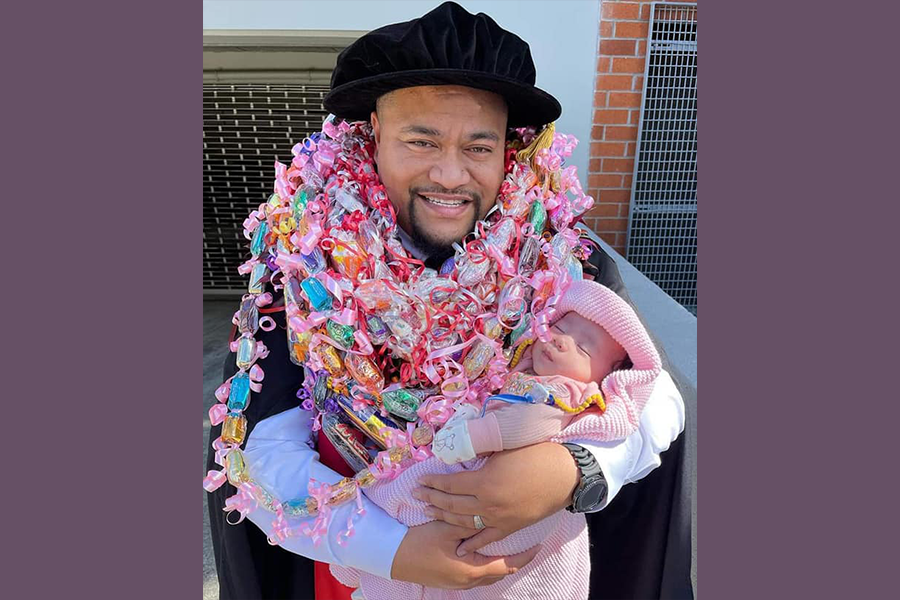
Dr Edmond Fehoko joined Otago late last year and was recently appointed the role of Associate Dean (Pacific) of Sciences. Seen here with his daughter Nancy Laumanu Pole-Fehoko.
Dr Edmond Fehoko wants to empower Pacific couples to talk freely about their struggles with infertility while actively pursuing solutions.
The Senior Lecturer in the Department of Human Nutrition and newly appointed Associate Dean (Pacific) of Sciences has received funding from the Health Research Council to co-lead a project on assisted reproductive technologies for Pacific peoples.
The project aims to both identify pathways that would better serve Pacific couples interested in reproductive technologies and empower Pacific communities with the knowledge needed to support Pacific couples experiencing infertility.
“We know as Pacific peoples the blessings that we can get from having children,” Dr Fehoko says.
“We’re now living in a generation where a lot of our Pacific couples are struggling to have children. It’s not just based on personal decisions, but also lifestyles, environments, diet, genetics.”
Having children is particularly important for Pacific peoples, who rely on their mokopuna to pass on cultural knowledge and to maintain traditions and language from one generation to another.
Both must be looked at in conjunction because reproductive services are not easy to access and are not always guaranteed to work, he says.
“I’ve almost called it the lottery, where you will pay tens of thousands for one go. If it works, you win, and if it doesn’t work, put in again.”
He says that there are not only financial barriers but also spiritual, cultural and health-related barriers that reduce the number of Pacific peoples accessing reproductive technologies.
“BMI, for example, already discriminates against Māori and Pacific.”
It is the mental health and coping aspect of this research that Dr Fehoko is most interested in. He and his wife navigated infertility for years before having a daughter last year.
“You feel excluded from anything that consists of the word ‘parents’. You feel you’re not fit enough to have one. These are just experiences me and my wife had gone through.”
Their experience guided his approach to his research and talanoa facilitating, where he says that showing “vulnerability” allowed Pacific peoples to feel safe entering his spaces.
“I share my personal experiences so we can journey together and share that talanoa,” he says.
He wants to educate Pacific families, churches, communities and providers on how to support couples who go through infertility.
“You get questions that are asked to couples who have been married for years, going through fertility issues, that are not talked about in our communities.”
Through this research, Dr Fehoko hopes he can help provide a better environment and support system for those who go through infertility.
Kōrero by Keilah Fox